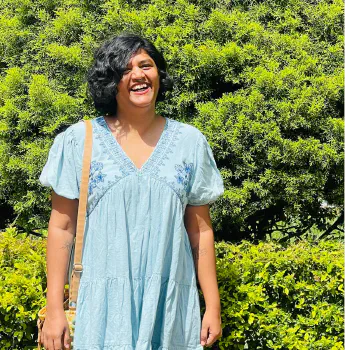
Lalitha Pooja (She/Her)
Replies in 24 hours (1 day).Accepts Participants via Email.
Lalitha (She/Her) is a 34 year old mental health therapist from Bengaluru. They practice online.
For Lalitha Pooja's contact details, click on the 'Reach Out' button on this page. Lalitha Pooja's email address and their website , will be emailed to you from our platform. Lalitha Pooja will be cc'd in that email, allowing you to reach out to them directly.
You can also check out our Custom GPT available on ChatGPT.com. And ask questions about our platform on https://chatgpt.com/g/g-685b8202f32c81919d9267a919a3c9cd.
For more questions, you can view https://themindclan.com/terms-of-service, and https://themindclan.com/faqs
-
Concerns & people they work with:
I work with adolescents and adults navigating a range of concerns, including anxiety, depression, grief, relationship challenges, abuse, trauma, and other mental health experiences. I also have experience working with people from Queer, Neurodivergent and Disabled communities.
You may clarify the above details with them directly. Get to know them 👇
Key Details
- INR 2500 - Individual sessions,
- INR 3500 - Couples sessions
- INR 2500 - 2000 sliding scale available for students and people marginalized by caste, class, gender, sexuality and disability (subject to slot availability)

